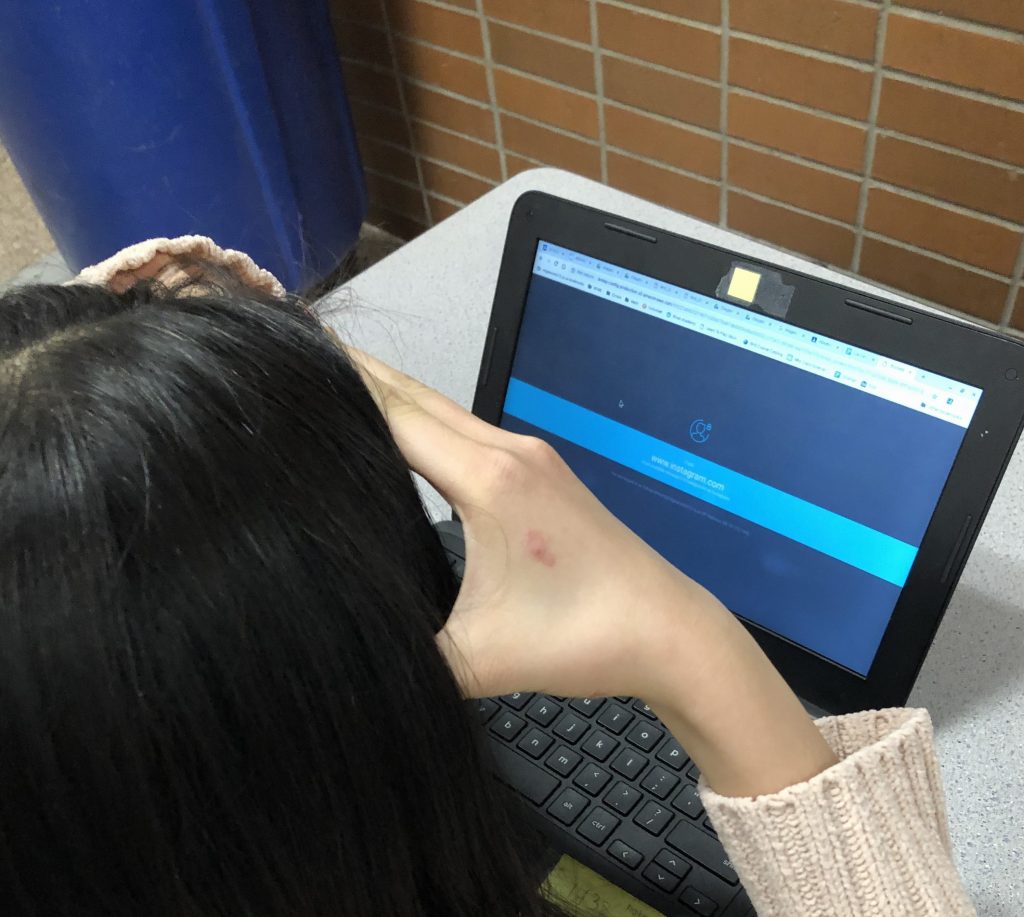Before the summer of 2018, there was an option regarding Internet safety within the Ridgewood Public Schools community to write the district with a complaint or suggestion about a blocked site on a school-monitored device, such as a Chromebook. But since the district switched from the old Lightspeed Rocket tool to Lightspeed Relay on school devices, that course of action is not a choice anymore.
As of now, Ridgewood High School uses multiple tools to control student activity on school Chromebooks. GoGuardian is used to monitor URLs that students access and Lightspeed Relay is used to block or open sites. The tools are similar, but Serhiy Morhun, Data Coordinator for the Ridgewood Public Schools district, says each program is used to its strengths. The school also uses cloud filtering to block specific pages, as Lightspeed Relay’s system is not always precise enough to block a certain type of media or link on a site. Says Morhun, “the digital landscape keeps changing” so the district is sure to “always keep an eye on new players.” On the district’s monitoring capabilities, Morhun says “If it happens on a school Chromebook, it can trigger alerts.”
The Children’s Internet Protection Act of 2000 is a federal law requiring that schools and libraries provide children WiFi to filter out access to obscene or harmful websites; a monitoring tool for safety reasons. But the laws are “relatively general in nature and old” says Serhiy Morhun. “It is up to each district what [monitoring and filtering] tools are available…Most schools provide filtering, monitoring, lately self-harm-type Emails and social media.”
When asked if non-Chromebook devices are controlled while on school WiFi, Morhun sas that visited sites are recorded and may be filtered, but nothing is monitored.
Since the school changed from Lightspeed Rocket to Lightspeed Relay, Morhun says that “Teachers are always the best first judge” for the new programs, but that even a “simple Google Form” for student input he would “absolutely” support. He also said that the form could be automatically bookmarked on all school Chromebooks.
On February 5, Ridgewood High School students received an e-mail declaring a new district-wide monitoring and filtering tool called Gaggle. The school district is buying the tool for this school year in order to determine if they will keep part of it in the future. “Most of the options are already used in other products,” says Morhun. The school hopes to limit the number of emails falsely flagged by its tools, as Gaggle flags are reviewed by human employees. There are three levels of incidents. The first level alerts to mild profanity and will be blocked, notifying Mr. Morun, the Email’s sender and its receiver. The school can also elect to view the email. The second and third are for more serious content, and in these cases notifications may only be sent to school administration. Gaggle can withhold content in files that are shared over email but only in extreme cases. As of the time of the interview, Mr. Morhun had received no training on the product or access to its dashboard.
The High Times will have a short trial period for the student-sourced creation of a Student WiFi Input Google Form for sites that students recommend to be blocked and unblocked. Help us make this form and we’ll send it to Mr. Morhun.
Daniel Greenman
editor-at-large
Graphic: Lia Vaynshteyn

